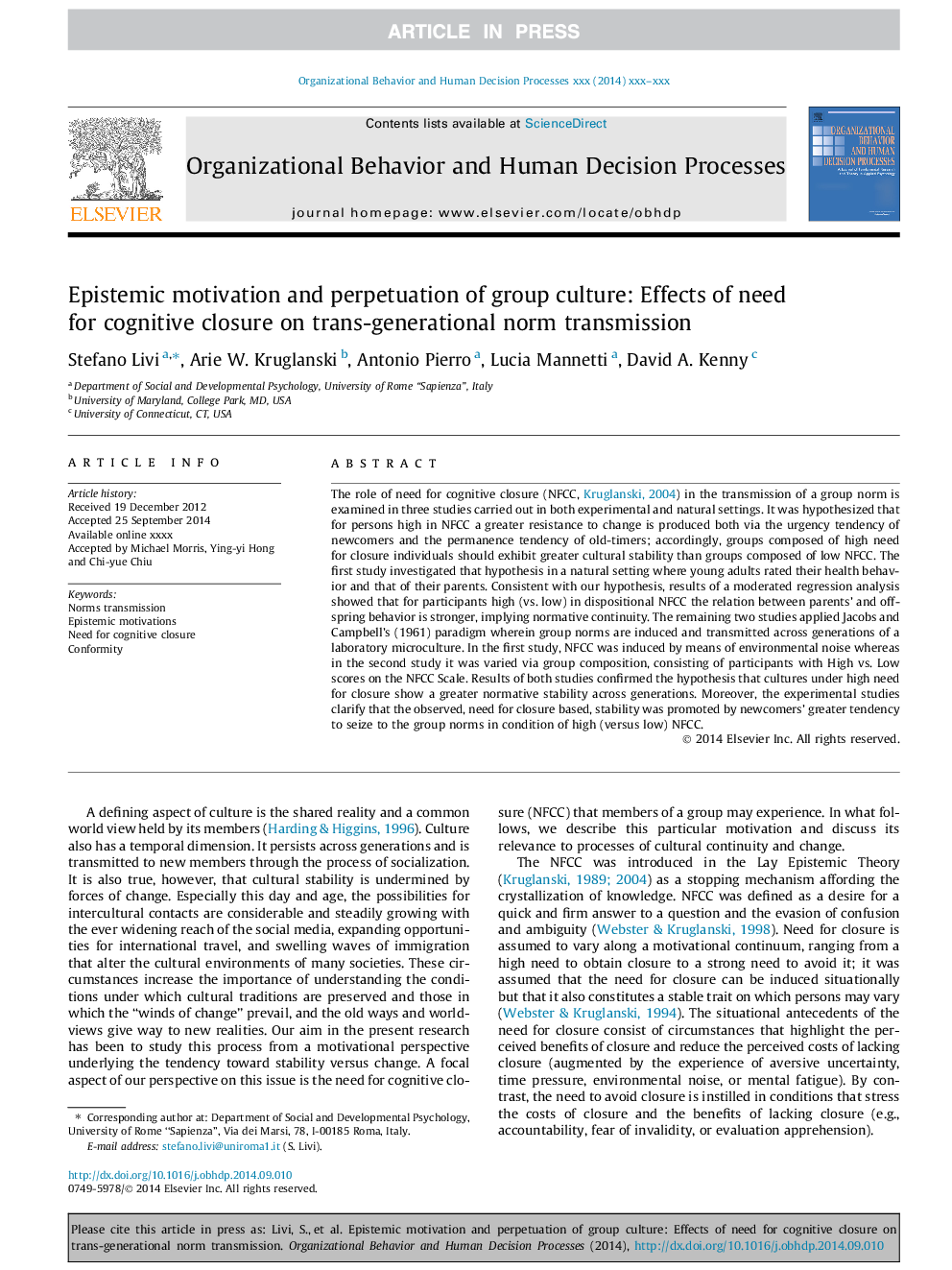| کد مقاله | کد نشریه | سال انتشار | مقاله انگلیسی | نسخه تمام متن |
|---|---|---|---|---|
| 7248243 | 1471852 | 2015 | 8 صفحه PDF | دانلود رایگان |
عنوان انگلیسی مقاله ISI
Epistemic motivation and perpetuation of group culture: Effects of need for cognitive closure on trans-generational norm transmission
ترجمه فارسی عنوان
انگیزش معرفت شناختی و حفظ فرهنگ گروه: تأثیر نیاز به بستن شناختی بر انتقال هنجارهای نسل سوم
دانلود مقاله + سفارش ترجمه
دانلود مقاله ISI انگلیسی
رایگان برای ایرانیان
کلمات کلیدی
انتقال استانداردها، انگیزه های معرفتی، نیاز به بستن شناختی، مطابقت،
موضوعات مرتبط
علوم انسانی و اجتماعی
مدیریت، کسب و کار و حسابداری
بازاریابی و مدیریت بازار
چکیده انگلیسی
The role of need for cognitive closure (NFCC, Kruglanski, 2004) in the transmission of a group norm is examined in three studies carried out in both experimental and natural settings. It was hypothesized that for persons high in NFCC a greater resistance to change is produced both via the urgency tendency of newcomers and the permanence tendency of old-timers; accordingly, groups composed of high need for closure individuals should exhibit greater cultural stability than groups composed of low NFCC. The first study investigated that hypothesis in a natural setting where young adults rated their health behavior and that of their parents. Consistent with our hypothesis, results of a moderated regression analysis showed that for participants high (vs. low) in dispositional NFCC the relation between parents' and offspring behavior is stronger, implying normative continuity. The remaining two studies applied Jacobs and Campbell's (1961) paradigm wherein group norms are induced and transmitted across generations of a laboratory microculture. In the first study, NFCC was induced by means of environmental noise whereas in the second study it was varied via group composition, consisting of participants with High vs. Low scores on the NFCC Scale. Results of both studies confirmed the hypothesis that cultures under high need for closure show a greater normative stability across generations. Moreover, the experimental studies clarify that the observed, need for closure based, stability was promoted by newcomers' greater tendency to seize to the group norms in condition of high (versus low) NFCC.
ناشر
Database: Elsevier - ScienceDirect (ساینس دایرکت)
Journal: Organizational Behavior and Human Decision Processes - Volume 129, July 2015, Pages 105-112
Journal: Organizational Behavior and Human Decision Processes - Volume 129, July 2015, Pages 105-112
نویسندگان
Stefano Livi, Arie W. Kruglanski, Antonio Pierro, Lucia Mannetti, David A. Kenny,
